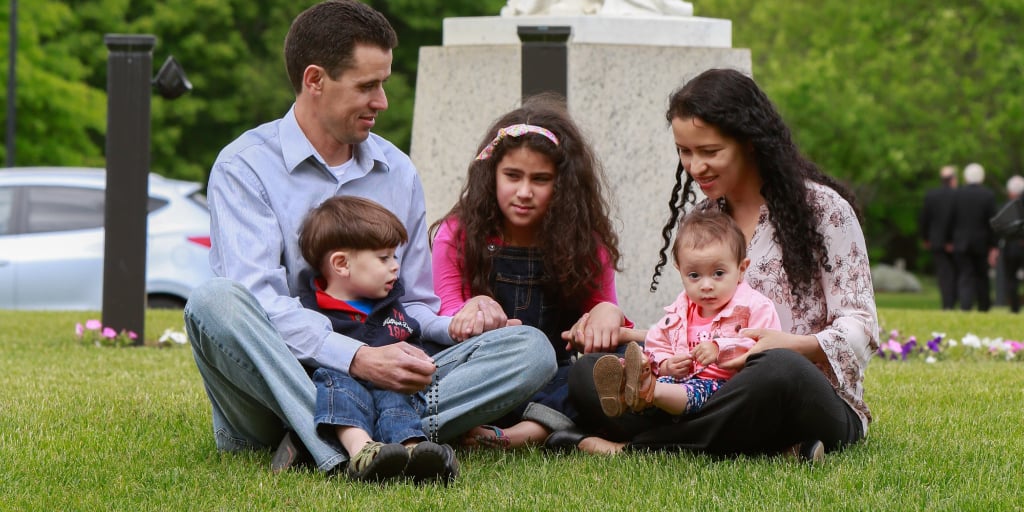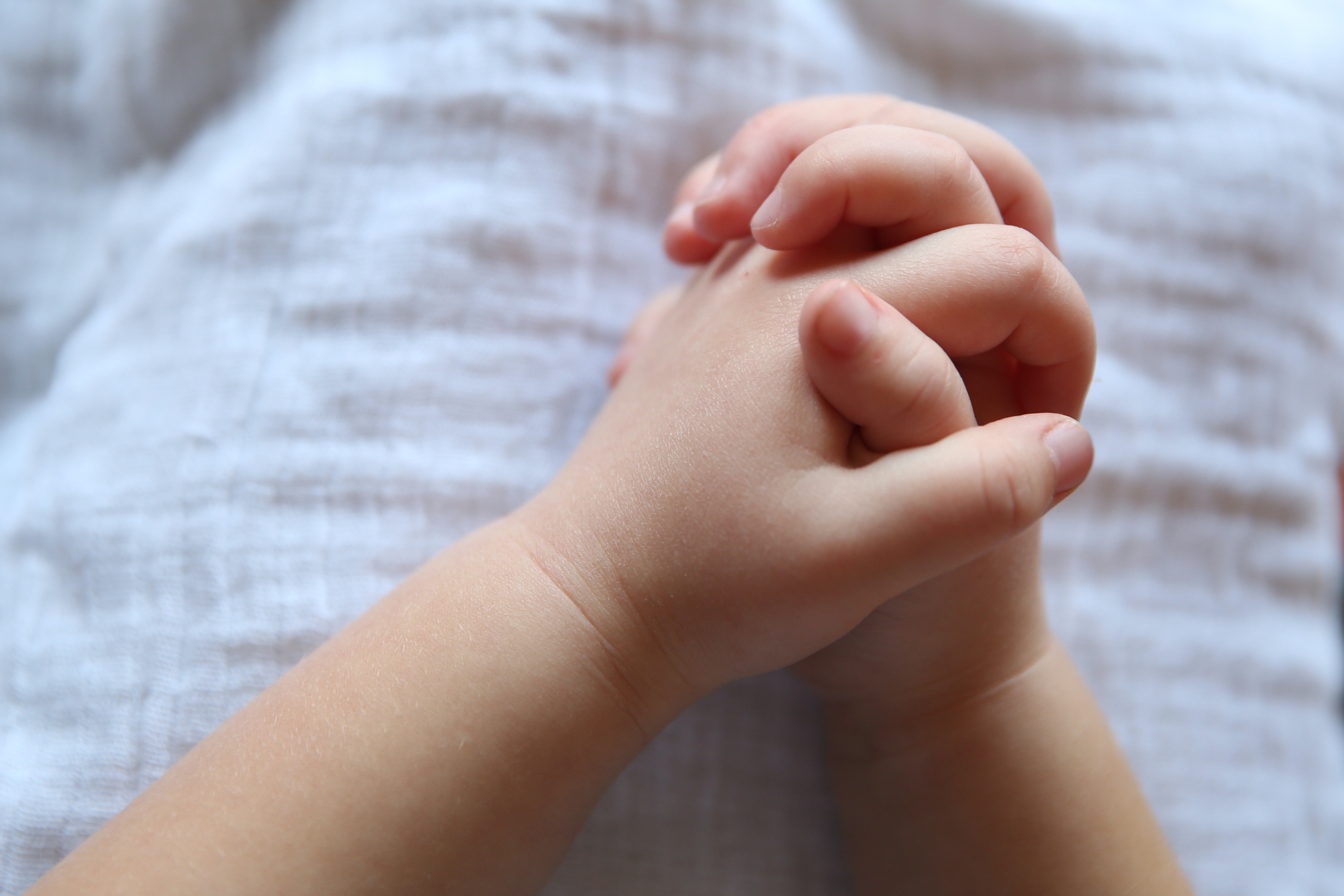
Lorelei Savaryn shares how motherhood and her Catholic conversion influenced what she and her husband teach their children about prayer.
Growing up, I didn’t really have a strong foundation in the area of prayer, or how it worked, or what it really meant. I knew in a general sense that prayer was talking to God, and that it often meant asking Him for something, or giving thanks. A lot of times I saw people pray for things they wanted to happen that didn’t come true, even though they prayed for it really hard.
That kind of thin, shapeless theology ended up causing trouble for me as a young adult. I didn’t understand how my prayers would even matter a little bit to a God who had so many bigger problems to deal with. I also didn’t think prayer really worked, so I went through the motions of praying at church and with family. And when alone, I didn’t really pray at all.
Fast forward to raising children and becoming Catholic. I understand prayer a lot differently now, I think, in part, because I understand God differently. As such, in our home, we’ve become much more intentional about how we pray, and what we teach our children about it, which can be boiled down to three main ideas.
1: Share Anything On Your Heart
This is one aspect of prayer that I understand better because I’m a parent. We teach our kids that they can literally come to God with anything on their hearts. As such, our kids often pray really beautiful, honest, and vulnerable things. And sometimes they pray that they would grow up to become super heroes and rock stars, too.
We teach them this because, as parents, I don’t care what my kid is feeling, I am ready to hear their heart. Any thought they have that they want to share, I will kneel on the floor in a heartbeat and lean in close. I want them to know I am a safe space for the vulnerable places inside them, or the joyful places, or the silly ones. God is the absolute best Father, and I am certain that He leans close too, no matter what we have to say.
2: God Gives What We Ask … Or Something Better
I think prayer can sometimes fall into operating like a slot machine, where we want the answer we want and right when we want it. We can get disillusioned if we get something else instead, or if we receive silence. Which is why we also teach our kids that God always, always, answers our prayers. And if he doesn’t give us what we ask for, he will give us something better.
Now, this doesn’t mean if you ask God for a lollipop that He’ll give you an entire candy store, although He could! What it does mean is that God knows our needs far better than we do, and we need to trust that He can and will only give us what is good for us.
I think, if I let them, my kids would eat pure sugar for breakfast, lunch, and dinner. They might think that sounds amazing. They might think doing that would be the very best thing. But I know a bit about growth and nutrition and blood sugar, and, because I know what’s good for them, I can’t let them have candy any time they want. I have to say no and offer them an apple instead.
God might answer our prayers a different way than we asked it. But He is Good, and just like as a parent I understand that certain things are good or bad for my children that they might not understand or see, God knows which things are good or bad for us too, and He will never give us something that isn’t truly good.
3: The Role of Suffering in Prayer
Which brings me to this. We also teach our kids that sometimes God might allow us to suffer. We live in a world that is fixated on comfort, and often strives to avoid suffering at all costs. But our Catholic faith doesn’t even come close to teaching that comfort is best. Sure, we can and should hope for better things to come, but we also need learn to accept what He gives. Sometimes, there might be a thing that is broken inside us that will hurt while it mends. Growing in holiness comes with the pain of releasing attachment to sin. We don’t deserve comfort, even though sometimes we are gifted it generously, and for that we can and should be grateful.
But our goal isn’t comfort. Our goal is sainthood, whatever it takes. We need only to look at the cross to see how suffering is redemptive. The most loving God saved us through it.
CLICK TO TWEET
3 truths about prayer we want to share with our children #catholicmom
Let’s especially remember, as we head into a new year after a year that brought so many hardships on a global scale, to ask God for whatever’s on our hearts, trust that His answer is good, and to accept what He gives, even if it means we need to accept the call to suffer. These are three big things I’ve learned about prayer as a parent and a Catholic. And I pray that my kids will hold onto these truths both now while they’re children, and as they grow up in the faith.

Copyright 2021 Lorelei Savaryn
Images (top to bottom): Copyright 2017 George Martell/Holy Cross Family Ministries, all rights reserved; Jude Beck (2019), Unsplash
About the Author

Lorelei Savaryn
Lorelei Savaryn joyfully joined the Catholic Church in 2016 after many years as a Protestant. She lives outside Chicago with her husband, four children, and dog named Saint. She writes about her faith and family life on ThisCatholicFamily.com. She is also a children's author. Her debut novel, The Circus of Stolen Dreams, released in Sept 2020 from Penguin Random House/Philomel.


.png?width=1806&height=731&name=CatholicMom_hcfm_logo1_pos_871c_2728c%20(002).png)
Comments